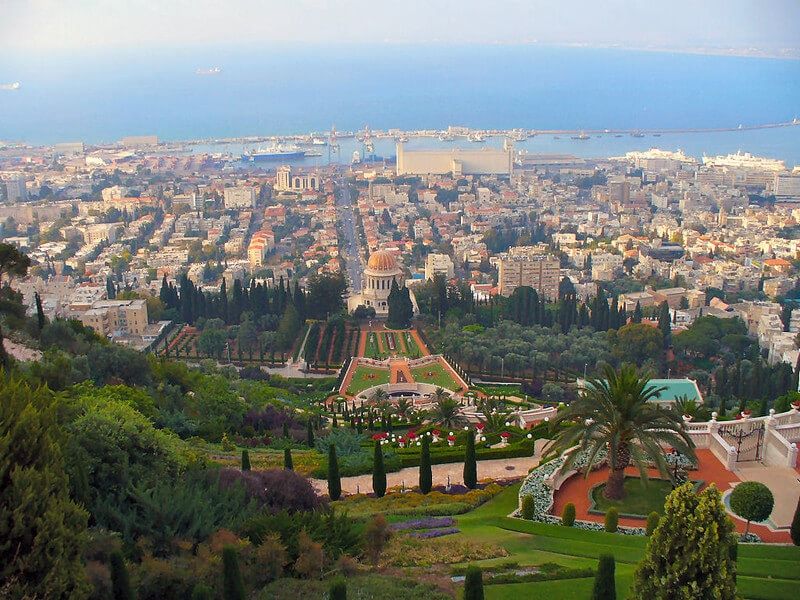As part of a series looking at personal experiences under the coronavirus in different parts of the world, the Irish Times interviews Juliet Casey “originally from Walkinstown, Dublin, but now lives in Palestine, where she teaches ballet.”

Casey is asked “Where do you live now?”
I live in Palestine with my fiancé Fadi, who is from Jerusalem. We first met in Belgium and eventually I decided to visit him over here for three weeks. Almost four years later I’m still here. Fadi is a circus artist so his projects take him all over the country and overseas fairly regularly. I started teaching ballet and we moved to Haifa, which is a seaside city with a big Palestinian population.
Haifa, as we ascertain from the rest of the article, is where Casey lives. Haifa, Israel’s third largest city. Not “Palestine” as Casey states. So begins what looks like a deliberate effort either on the part of Casey or the Irish Times (or both) to confuse readers and conflate Israel with “Palestine.”

Casey is asked “Has Covid-19 affected you in Palestine?”
Covid-19 has really affected everyone here. We are currently in total lockdown and face hefty fines if caught more than 100m from our home. The Israeli government says it has introduced extra phone-tracking to track those who have or may have contracted the virus, but some people here think this is an opportunity for more social control.
Given the question, you’d think that Israel had locked down the Palestinians and may even be using tracking technology for nefarious purposes. Except Casey and her fiance are actually in Haifa and, like all residents of Israel, subject to coronavirus restrictions in order to protect lives.
Join the fight for Israel’s fair coverage in the news
The geographical mess continues:
Each day there is less and less movement. At the beginning of the outbreak I had to stop all work in the refugee camps in Bethlehem when it went into lockdown, then Nablus and Ramallah were added to that list, then Nazareth and finally Haifa.
Bethlehem, Nablus and Ramallah are under the control of the Palestinian Authority, which took action in cooperation with Israel to lock down its major cities due to the coronavirus risk. Nazareth and Haifa are, of course, both Israeli cities. For Casey and the Irish Times, however, there appears to be no differentiation between Israeli and Palestinian population centers, which adds to the impression that Israel is solely responsible for restricting Casey’s movements.
Again, Casey is asked “How is it being ballet teacher in Palestine?” yet talks about teaching in Nazareth, which is also falsely portrayed as Palestinian.
It’s hard to believe that Casey’s agenda isn’t driven by malice when she produces an outright libel:
Gaza, the self-governing Palestinian territory, suffers from almost constant bombardment.
Gaza is certainly not under “almost constant bombardment.” In fact, if Casey or the Irish Times were interested in the reality of life in the region under the coronavirus threat, the article would have noted that Israel is actually supplying medical supplies and assistance to both Gazans and West Bank Palestinians during this crisis.
Related reading: Misleading Palestinian Maps Twist the Truth
Did Juliet Casey use the opportunity of a platform in the Irish Times to push an anti-Israel agenda? Given the failure of editors to notice the appalling and confusing errors as well as the libelous claim, it appears that the consistently hostile media outlet was only too happy to go along with it.
We’ve emailed the editor of the Irish Times to point out the issues and requested corrections and clarifications.


